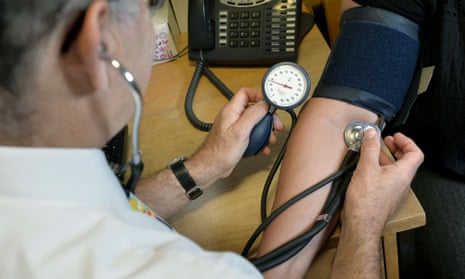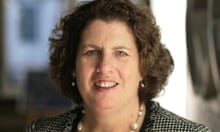A third of GPs in the UK plan to retire in the next five years because of high stress levels, unmanageable workloads and too little time with patients, in a move that would exacerbate the existing difficulty of getting an appointment.
A poll of 15,560 GPs by the British Medical Association (BMA) has found that 34% intend to stop working by 2020, with many others going part-time, moving abroad or even abandoning medicine altogether.
The findings thrust the issue of GP numbers into the election spotlight as the BMA accused the political parties of making “absurd” promises to tackle what it called a “crisis” and of ignoring the reasons why NHS general practice is facing a worsening shortage of medics.
Dr Chaand Nagpaul, chair of the BMA’s GPs committee, said: “It is clear that incredible pressures on GP services are at the heart of this problem, with escalating demand having far outstripped capacity.
“GPs are overworked and intensely frustrated that they do not have enough time to spend with their patients, especially the increasing numbers of older people with multiple and complex problems who need specialised care.”
Most of the GPs who said they would retire were over the age of 50. The BMA said the fact that 36% of GPs aged 50-54 and 5% of those between 41 and 49 said the same thing underlines that a significant number of those quitting will be taking early retirement because they are disillusioned and worn down.
The research, conducted by the polling firm ICM, also concluded that the 82% of those aged 60 or over and 79% of 55-59-year-olds whosaid they intended to stop working suggest that some of the loss of personnel will be through natural wastage.
Politicians have seized on the figures. Andrew Gwynne, a Labour shadow health minister, said: “David Cameron has caused a new GP recruitment crisis. Thousands are retiring early in despair, making it even harder to get an appointment.” The party has pledged to hire 8,000 GPs extra by 2020, paid for by its planned £2.5bn a year Time to Care fund.
A spokesman for the Conservatives highlighted the party’s own NHS funding pledge, made last week: “We believe GPs are the bedrock of our NHS, which is why we have committed an extra £8bn a year by 2020 to the NHS to support its own plan for the future. This will ensure a new deal for general practice including better investment and the recruitment of an extra 5000 GPs by 2020.”
Norman Lamb, the Liberal Democrat health minister and his party’s health spokesman, said: “The Liberal Democrats are the only party with a credible plan to invest the extra £8bn the NHS needs per year by 2020. We will have at least 5,000 more GPs by then but with this additional investment the number will be higher. Labour may claim they will provide more GPs but the NHS needs hard cash not warm words.”
The imminent loss of so many GPs has potentially major implications for patients’ access to consultations, as the NHS is already failing to persuade enough newly qualified medical graduates to opt for a career in general practice. The NHS’s own GP taskforce warned last year that although ministers want to see 3,250 trainee GPs being recruited every year, “GP recruitment has remained stubbornly below this target, at around 2,700 per annum, for the last four years” – a shortfall of around 2,200 new doctors.
The impending exodus is so great that patient safety could be at risk, warned Dr Maureen Baker, chair of the Royal College of GPs (RCGP). “Highly trained and experienced GPs are leaving the profession in growing numbers because of the intense and increasing pressures that we are facing, and not enough medical students are entering general practice to replace them. This is a genuine danger to patient safety – and to the wellbeing of hardworking family doctors and our teams.”
She highlighted “the chronic lack of family doctors across the country, and the devastating impact this could have on the future of general practice, the wider NHS, and most importantly, our patients.
In addition, the BMA/ICM research concluded that 17% of GP are considering going part-time, including 28% of those who currently work full-time. Almost one in 10 (9%) GPs, including 19% of trainees, may leave the UK to work overseas. General Medical Council figures last November showed that more than 500 GPs in England had begun the process of leaving the country to work overseas.
Another 8% may opt to become a locum GP, which means they can choose how many days they work. And 7% are considering quitting medicine completely, while 5% may move into another branch of it, and another 5% may choose to leave the NHS and go into private practice.
Many GPs are ending up burned out because of stress brought on by mountains of paperwork and ever-increasing responsibilities for patients as care is moved out of hospitals, Nagpaul said.
“In this climate it is absurd that in the recent leaders’ debate political parties were attempting to outbid each other on the number of GPs they could magically produce in the next parliament. Since it takes five to eight years to train a GP it is not possible to create thousands of GPs in this timeframe. These pledges blindly ignore the recruitment and retention crisis that is draining the GP numbers we already have”, Nagpaul added.
Among the 15,560 respondents, over a third of the total 43,000 GP workforce, 53% said their workload was “generally manageable [but] too heavy at times” while 37% declared it “unmanageable”. Only one in 10 found it “generally manageable” (9%) or “low” (1%).
One in six (16%) said their stress level was “significant and unmanageable”, while 68% said it was “significant but manageable” and another 13% “acceptable”. Just 2% said they experienced little or no work-related stress.
The RCGP says 10,000 more GPs are needed across the UK by 2020 and is urging the NHS to increase general practice’s share of its budget from 8.3% to 11% to help GPs cope with growing demand.





Comments (…)
Sign in or create your Guardian account to join the discussion